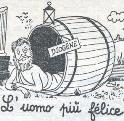|
euphronius posted:What studies Look, when most of the studies, articles and literature start with statements like "Decades of research has shown that people are poor at detecting lies." (https://psycnet.apa.org/record/2011-13176-001), Google searches for "why are humans good at detecting deception" come up with articles like these as the first hits "The End of Detecting Deception" (https://www.psychologytoday.com/us/blog/spycatcher/201807/the-end-detecting-deception), you kinda should take it just about as read as that hiring a professional to field most legal matter is a good idea. Note that research has shown that training apparently does have a slight to medium positive effect (e.g. https://forums.somethingawful.com/newreply.php?action=newreply&postid=499535889, https://www.tandfonline.com/doi/abs/10.1080/1068316x.2010.535820) but the positive impact was heavily dependent on the precise training in question, the type of lie told etc and ultimately turned people from as good as chance to statistically slightly better than change. Law enforcement officials routinely overestimate their ability to detect liars. Also, lol at "Also trials arenít ďstatement and demeanor alone ď " given the number of trials which turned on witness evidence alone or the high number of instances, trials and otherwise, when it is simply one person's word against another's. Not to mention all the jury follow up interviews where it becomes clear that the ruling hinged on the jury's impression of a witness. Yeah, sometimes the police and prosecutors have someone dead to rights. They have a mycrimes.txt written by the defendant or a clear video of the crime and the defendant stupidly staring at the camera but often is also comes down to how credibly expert witnesses, prosecutors, etc come across. It's part of the reason why there are some pretty tight rules about closing arguments etc.
|
|
|
|

|
| # ? May 15, 2024 01:44 |
|
Hmm. I totally disagree and think Iím right . You canít hand waive away the context and evidence in a trial which informs peopleís intuitions in addition to demeanor on the stand.
|
|
|
|
euphronius posted:Hmm. I totally disagree and think Iím right . You canít hand waive away the context and evidence in a trial which informs peopleís intuitions in addition to demeanor on the stand.
|
|
|
|
twodot posted:In your estimation, what sort of percentage of "correctly decided the trial" would be useful evidence that jurors/court officiers are good at distinguishes lies from truths? Why are you using scare quotes around ďcorrectly deciding the trialĒ
|
|
|
|
euphronius posted:Why are you using scare quotes around ďcorrectly deciding the trialĒ
|
|
|
|
If you want to nitpick jurors probably gently caress up criminal trials for obvious reasons I wasnít taking about criminal trials and usually donít as I have no knowledge of them
|
|
|
|
euphronius posted:If you want to nitpick jurors probably gently caress up criminal trials for obvious reasons
|
|
|
|
What is your solution for replacing jurors? The judge who is thinking about his next election?
|
|
|
|
twodot posted:Jurors loving up criminal trials seems like a really bad fact for the idea that jurors are good at knowing who is lying. Jury criminal trials are a minuscule part of law. In the universe of trials and hearings and arbs, they probably make up 1% of cases . Maybe less Anyways Iíd argue that jurors loving up criminal cases is not really about them trusting the wrong person based on some careful balancing and weighing and you know that . Thatís not what Iím talking about As I said they probably gently caress up criminal cases . I wasnít talking about that. So I admit for the things you want to talk about you are right but I wasnít talking about that .
|
|
|
|
nm posted:What is your solution for replacing jurors? The judge who is thinking about his next election? euphronius posted:Hmm. I totally disagree and think I’m right . You can’t hand waive away the context and evidence in a trial which informs people’s intuitions in addition to demeanor on the stand.
|
|
|
|
No I disagree. They gently caress up trials but thatís not what I was talking about You are making a leap and backwards thinking that jurors loving up crim trials means they canít tell if someone is lying and that is a big old assumption that Iím not following. They probably know people are lying and donít care. euphronius fucked around with this message at 04:48 on Oct 30, 2019 |
|
|
|
euphronius posted:No I disagree.
|
|
|
|
twodot posted:I can't parse a distinction between "people know who is lying and do actions ignoring that knowledge" and "people don't know who is lying and do actions independent of who is lying". Like how do you go about measuring that? You are using the proposition that jurys gently caress up crim trials to support the assertion that people are bad at telling who is lying I donít agree that you can make that leap because jurys are probably loving up verdicts for lots of reasons. Ie the verdict is reached notwithstanding the fact the the cop is lying and everyone knows it . Or the judge hamstrung the PD. Or the PD hosed it up. Or the defender was railroaded by a false test results. And so on and so on That is a totally separate (tho incredibly important ) issue from what I was talking about which was stupid administrative hearings over 4,000$ in unemployment benefits in front of neutral officers. There (and in other civil hearing that may involve lay fact finders) it has been my experience that they have been reasonably good at parsing credibility . Obviously if you put 300 years of white supremacist prejudice on top of everything like you have in criminal cases most of the time then you will get worse results .
|
|
|
|
euphronius posted:That is a totally separate (tho incredibly important ) issue from what I was talking about which was stupid administrative hearings over 4,000$ in unemployment benefits in front of neutral officers. There (and in other civil hearing that may involve lay fact finders) it has been my experience that they have been reasonably good at parsing credibility . Obviously if you put 300 years of white supremacist prejudice on top of everything like you have in criminal cases most of the time then you will get worse results . edit: Also how did you manage to measure their goodness at parsing credibility? The frequency that they agreed with you?
|
|
|
|
twodot posted:The poster that you replied to gave you evidence that people trained in recognizing deception only barely did better, and also routinely over estimated their ability to detect deception. Were those tests done in the context of a trial where the people had the context of an entire record of evidence to use including the testimony of other people or where they one off events done by graduate students in a social science lab.
|
|
|
|
euphronius posted:Were those tests done in the context of a trial where the people had the context of an entire record of evidence to use including the testimony of other people or where they one off events done by graduate students in a social science lab. euphronius posted:it has been my experience that they have been reasonably good at parsing credibility .
|
|
|
|
What are you confused about.
|
|
|
|
nm posted:What is your solution for replacing jurors? The judge who is thinking about his next election? Let me let out yet another hearty guffaw at the concept of elected judges. In many cases impartial professional third parties like (non-elected) judges and arbitrators do do a better job than untrained, naive jurors. Judging by his posts that the system euphronius seems to favor as being great and accurate. I think that view is too rosy for a wide variety of reasons. One example would many arbitrators where one party represents repeat business and the other does not. That said I still have a romantic attachment to the concept of juries due to basic democratic principles. It seems that the current system is set up to keep jurors confused, bewildered and prepped to go with their gut. They will have been presented with two plausible contradicting stories, evidence for each which they will have mostly forgotten (because who takes good notes?) and ultimately they will mostly remember the conviction with which each sides misrepresented the evidence in order to win their case. Not to mention that jurors are people who have essentially been asked to watch a play featuring actors they don't know, with a muddled plot, half in a language they do not understand, potentially over the course of several days, without nodding off or thinking about the really hot court reporter, and then agree on a summary of the plot afterwards. Frankly I believe juries should be given better support to marshall all this. What is your thinking on the topic nm? Munin fucked around with this message at 05:44 on Oct 30, 2019 |
|
|
|
euphronius posted:What are you confused about. euphronius posted:they have been reasonably good at parsing credibility
|
|
|
|
Itís funny because lawyers who represent corporations frequently complain about arbitrators being ďtoo fairĒ haha (that is a propensity to ďsplit the babyĒ in disputes where the cooperation may have an extremely strong case that a judge would award the summary judgment) Oh well .
|
|
|
|
twodot posted:I asked you a direct question, how did you go about determining the people you are talking about are, in your own words: ďIn my experience (as a lawyer)Ē If you have a study which actually studies the ability of fact finders in actual hearings and actual trials to judge credibility Iíll read it but I doubt it exists
|
|
|
|
euphronius posted:ďIn my experience (as a lawyer)Ē edit: Perhaps you personally lied to them to test on how they responded? twodot fucked around with this message at 05:17 on Oct 30, 2019 |
|
|
|
twodot posted:No I get you are talking about your experience, what I want to know is how, in your experience, you measured the ability of people to determine lies. Did you just assume people who agreed with you correctly determined lies? Did you keep a journal of claims that you were able to later validate? Did you do something else? You are getting into a deeper epistemological questions about the notion of truth in hearings to begin with . It gets murky fast . There is only a tenuous connection to reality. Reality quickly becomes the evidence in the case and there is no telling how accurate that is. Especially since the hearing or trial can happen months or years after the relevant events. Also credibility is more nuanced than figuring out who is ďtelling liesĒ. Often you have two people who are telling they truth but their truths are mutually exclusive. So thatís a pickle. And then you get cases where everyone is lying (not my clients obviously . Never! ) so: what is credibility in this bizarre, time shifted shadow realm of reality? The nebulous quality of being believable or trustworthy in their statements in the context of the evidence in the case or record. In my experience people are good judges of that. Is what the witness saying ultimately true? Ultimately true outside of the evidence of the case in a world that hasnít existed for months or years? Who knows: it doesnít matter anyways. What matters is a finding that what they are saying is true based on the evidence in the case. That is their credibility. A lawyer can determine that. Thatís what we are trained to do. We determine it by looking at the evidence (all of the evidence ) and looking at the witnesses testimony and figuring it out.
|
|
|
|
euphronius posted:ďIn my experience (as a lawyer)Ē Well, you could kick off with the fact that in general Police are no better than lay people: https://www.researchgate.net/publication/221706527_How_good_are_police_officers_at_spotting_lies And generally hold the same preconceptions about liars as lay people: https://journals.plos.org/plosone/article/file?id=10.1371/journal.pone.0156615&type=printable Now, I can't find any research (either positive or negative) about the capabilities of arbitrators and I already spent too long on this internet slapfight. That said all research I have found shows that in general laypeople and professionals seriously overestimate their ability to figure out whether someone is making a true statement. I think it would be naive to contend that those overconfident assessments do not impact the assessment of a case or other situation. I would be very interested to hear about any research you have on hand pointing to the superior capabilities of "fact finders". My closing would be that it has been shown that a wide variety of people, some of whom it is a core part of their profession, are awful at discerning whether someone is dissembling or not. In many cases, both civil and criminal, rely on professionals or jurors to assess whether a witness is making a truthful statement. This is especially the case in instance of rape, harassment, and other disputes where physical evidence is limited. I would also include many labor disputes in that category. Now, people can be trained to at least do better, to examine their biases, to be informed about what are in fact awful markers to judge whether someone is lying or not, to have a sounder view of how much weight they should put on witness statements. None of this is provided to jurors or professionals and to make things worse many professionals are in fact mis-trained. work should be done to address this.
|
|
|
|
I don't love the idea of even unelected people basically acting as triers of facts in criminal cases, regardless of training. Working in the crminal justice system too long makes you bitter and cynical and makes you think everyone is lying. You start thinking of yourself as part of the law enforcement team. Plus you see the same cops over and over and as you learn about them, it gives them an unfair testimonial advantage over a defendant who they've either never seen, or seen in court 10 other times accused of some poo poo. Yes, I know a lot of other countries do that. I don't know what their wrongful conviction rates are. However, I would caution that the US's seemingly high wrongful conviction rate (I'd argue that any wrongful conviction is too high, but that's beyond this argument) is certainly helped by the death penalty causing a much greater interest in wrongful convictions, which attracts lawyers to the field as well as the people who pay them.
|
|
|
|
nm posted:I don't love the idea of even unelected people basically acting as triers of facts in criminal cases, regardless of training. Working in the crminal justice system too long makes you bitter and cynical and makes you think everyone is lying. You start thinking of yourself as part of the law enforcement team. Plus you see the same cops over and over and as you learn about them, it gives them an unfair testimonial advantage over a defendant who they've either never seen, or seen in court 10 other times accused of some poo poo. Yeah, definitely all good points. Justice is a hard system to get right and there are always trade-offs one way or another. I voiced similar concerns you do about judges as finders of fact in regards to arbitrators which are in a similar situation. I would be much more comfortable with juries if the system was reviewed and more effort made to make sure that they are making these determinations in the way we would expect them to. That things are set up so it is easier for them to do so. Jurors get less prep and training than my intern does. nm posted:Yes, I know a lot of other countries do that. I don't know what their wrongful conviction rates are. However, I would caution that the US's seemingly high wrongful conviction rate (I'd argue that any wrongful conviction is too high, but that's beyond this argument) is certainly helped by the death penalty causing a much greater interest in wrongful convictions, which attracts lawyers to the field as well as the people who pay them. Even the limited scrutiny the US system gets is much more than the systems in other countries do. There is an awful lot wrong with the US justice system but at least there is a space for innocence projects and the like. I do think a good bit of the relatively higher false conviction rates are due to that, I don't trust the numbers in other countries to be a good reflection of actual false conviction rates since many of the issues in the US also exist there. That said I am sure that the false conviction rates, based on exonerations achieved, are also not a true reflection of the problem. That is not even going into how the majority of the system runs on plea deals.
|
|
|
|
EwokEntourage posted:What if your employer is just one big happy family lmao if you don't steal from your family.
|
|
|
|
Turtlicious posted:lmao if you don't steal from your family. On the topic of family, stealing and wills. I am not looking forward to the mess when my spiteful grandfather dies and the intermingled assets between him and my uncles need to be sorted out (my mother had a falling out with him decades ago after he screwed her and my father over a large sum of money so hopefully should only be caught in the by-blow). He has assets in all sorts of jurisdictions and his own personal take on reality and legality. Lawyers will definitely be involved. I am very thankful that my parents have properly drawn up wills etc and have clearly communicated the general arrangements to us.
|
|
|
|
euphronius posted:You are getting into a deeper epistemological questions about the notion of truth in hearings to begin with . It gets murky fast . There is only a tenuous connection to reality.
|
|
|
|
Maybe the real enemy of truth is the oversimplification of laboratory condition research results applied to real world context.
|
|
|
|
Truth is a lie
|
|
|
|

|
|
|
|
euphronius posted:There (and in other civil hearing that may involve lay fact finders) it has been my experience that they have been reasonably good at parsing credibility . It's the hardest part of the job. Especially when you are forced to do it by phone conference.
|
|
|
|
Nice piece of fish posted:Maybe the real enemy of truth is the oversimplification of laboratory condition research results applied to real world context.
|
|
|
|
'People are good at spotting the truth it's just that their biases and racism get in the way' means that people are bad at spotting the truth. If they need a bunch of evidence thrown at them, they are not good at telling who is lying.
|
|
|
|
What do you guys think about the illustrated guide to law? This thing: http://lawcomic.net/guide/ I've been through it a couple times and while he goes way off the rails sometimes and his latest extended screeds about prehistorical human cultures is a bunch of bullshit, the early basics he put up about how the law works and why it's built the way it is was really compelling and interesting to me so I'm hoping it's not also full of errors and omissions.
|
|
|
|
Looks like a lot of bio truths
|
|
|
|
Yeah that's the newest page, the author insists he's been doing tons of research and he's trying to lay out how we first put together concepts of justice as enforced by government but it's clear it's not his area of expertise and he's just taking at face value two or three specific sources he likes without talking to like, actual anthropologists. But if you start at the beginning it's mostly not that stuff. http://lawcomic.net/guide/?p=18
|
|
|
|
I skimmed the first 30 pages and it seems like a bizarre thing and I donít know who itís aimed at. It didnít see anything obviously wrong.
|
|
|
|

|
| # ? May 15, 2024 01:44 |
|
I think it's aimed at the layperson who knows nothing about the law and wants to learn the basics. It feels like, for example, a decent intro to the concept of mens rea. Anyway I was more asking if folks were already familiar with it, I don't expect you to read the whole thing.
|
|
|













